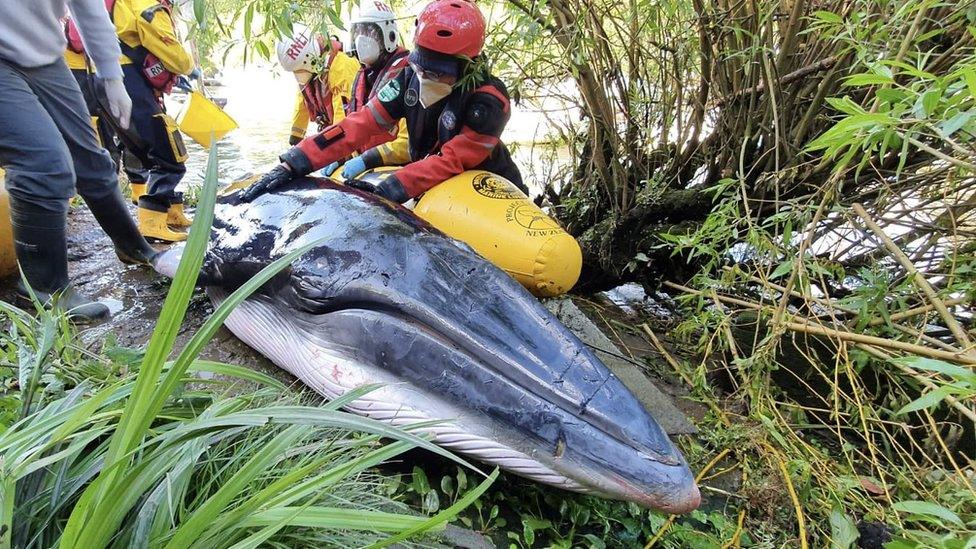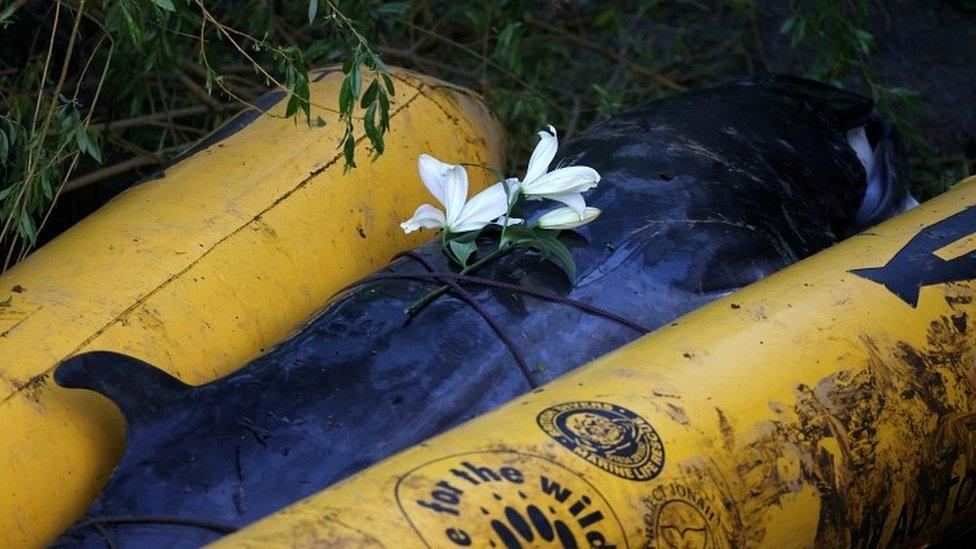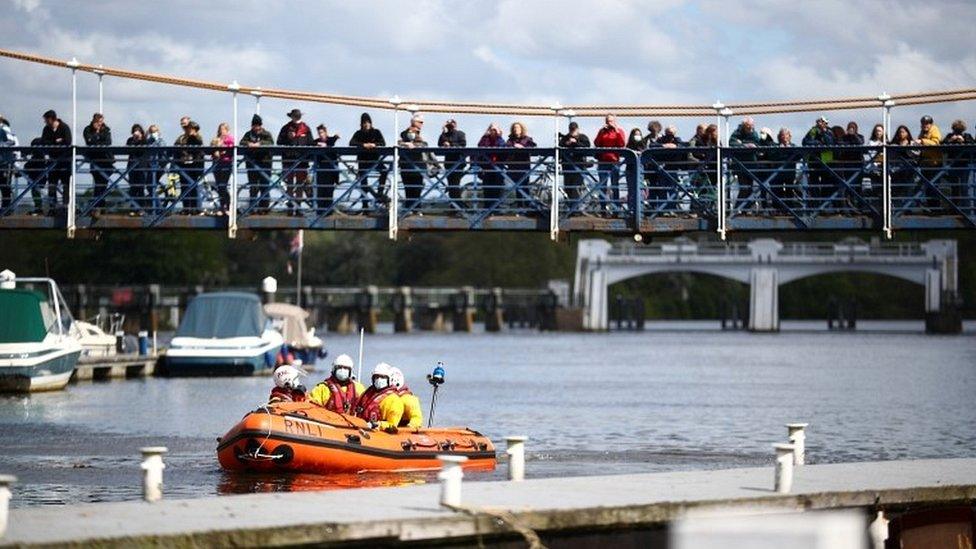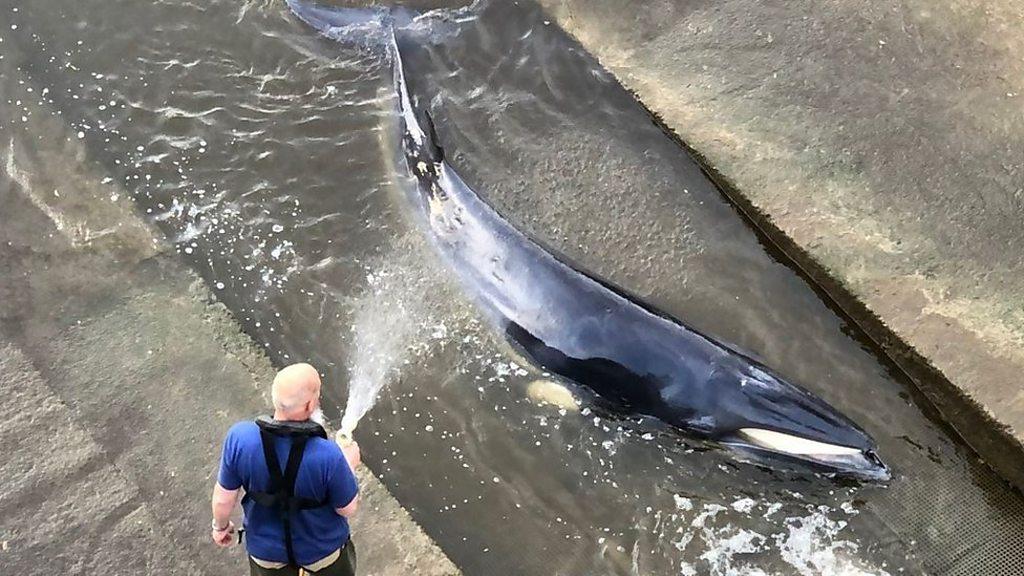River Thames whale was malnourished, post-mortem tests show
- Published

The whale was loaded on to the back of a truck at Teddington lifeboat station and taken to Whipsnade Zoo
A juvenile minke whale that had to be put down after becoming stranded in the River Thames had starved "over a few days", vets have found.
The one-tonne whale was rescued after getting stuck in Richmond Lock, but escaped and was later found beached against a river wall in Teddington.
It was put down after vets found its condition was "rapidly deteriorating".
Full results of the post-mortem tests carried out on the female minke are not expected for a few weeks.
Rob Deaville, who took part in the tests held at Whipsnade Zoo, said the whale was thought to have been about two years old, meaning it was likely it was still dependent on its mother.
The whale was filmed by onlookers in Teddington on Monday morning
The juvenile minke, which was 4.2m (13ft 8ins) long, was first spotted near Barnes Bridge on Sunday and later became stranded on Richmond Lock's boat rollers.
RNLI teams managed to move it but the mammal escaped and was seen swimming between Richmond and Teddington on Monday morning before becoming stuck once more.
A vet from the Zoological Society of London (ZSL) administered an injection to put it down after it became stranded on the embankment.
The post-mortem examination was carried out by the Cetacean Strandings Investigation Programme (CSIP), which is led by ZSL.
Mr Deaville told the BBC that while the full results would take a few weeks, they had found there was "no evidence of any recent feeding" and "evidence of starvation over a few days", which he explained was consistent with the whale being found in the Thames.
Parasites were also discovered in the animal's stomach although vets did not believe this was significant, Mr Deaville said.

The full results of the post-mortem examination are expected in a few weeks
Many whales that end up stranded in the UK are found to have starved, having not been able to feed sufficiently in the North Sea.
Minke whales are the smallest of the great whales, growing to about 33ft (10m), and are usually found throughout the northern Atlantic and Pacific oceans.
Mr Deaville, CSIP's project manager, said he believed the number of whales found in the Thames had increased in recent years, "broadly speaking".
Of the some 1,000 strandings of whales, porpoises and dolphins that happen every year in the UK, about 40 are minke whales - although they are generally found further north in Britain.
"It could be because there are increased numbers of them or it's man-made impacts. The jury is still out," he said.

Flowers were placed on the minke whale after it was put down
Samples were taken from the one-tonne mammal and the carcass has been taken away for incineration.
Mr Deaville added that as well helping to establish what happened to the whale, the samples would provide research material "for years to come".
"We're going to learn a lot about it - it's life and the species as a whole," he said.

Large crowds gathered on Sunday and Monday to get a glimpse of the mammal
- Published10 May 2021

- Published10 May 2021

- Published10 May 2021

- Published8 March 2012
